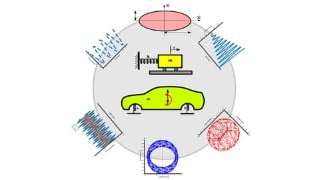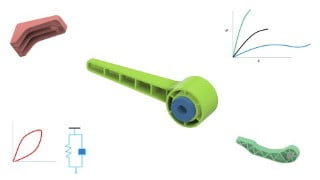Free Mechanical Engineering Tutorial – Basics of Mechanical Engineering
Learn about core areas in mechanical engineering such as gas turbines, refrigeration cycles, and vapor compression systems. This course covers topics like open and closed cycle gas turbines, Morse test for identifying IP, air refrigeration, and more. Suitable for diploma and engineering students. Join now!
Hello Dear Students,
The mechanical engineering field requires an understanding of core areas including gas turbines, refrigeration cycle, vapour compression systems and many more topics.
In this course you will leran!
Open and Closed Cycle Gas turbine
Morse test to identify IP and It’s numerical
Air Refrigeration and vapor compression system.
Supercharging
Turbocharging
MPFI System
An internal burning engine like a gas turbine works by rotating rather than responding to the motion. This type of turbine includes three essential components like the compressor, power turbine & combustor.
A closed-cycle gas turbine is a turbine that uses a gas (e.g. air, nitrogen, helium, argon, etc.) for the working fluid as part of a closed thermodynamic system. Heat is supplied from an external source
An open cycle gas turbine can be defined as a combustion turbine plant that is fired up using liquid fuel for rotating a generator so that electricity can be produced
The purpose of Morse Test is to obtain the approximate Indicated Power of a Multi-cylinder Engine. It consists of running the engine against a dynamometer at a particular speed, cutting out the firing of each cylinder in turn and noting the fall in BP each time while maintaining the speed constant.
A supercharger is an air compressor that increases the pressure or density of air supplied to an internal combustion engine.
A turbocharger, colloquially known as a turbo, is a turbine-driven, forced induction device that increases an internal combustion engine’s power output by forcing extra compressed air into the combustion chamber.
Irrespective of your background, learning about The mechanical engineering field will benefit you greatly.
So, Happy to see you all in class.
Who this course is for:
- Diploma and Engineering students
User Reviews
Be the first to review “Free Mechanical Engineering Tutorial – Basics of Mechanical Engineering”
You must be logged in to post a review.







There are no reviews yet.